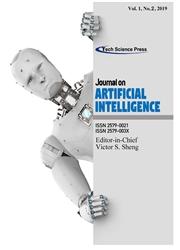Embracing the Future: AI and ML Transforming Urban Environments in Smart Cities
引用次数: 0
Abstract
This research explores the increasing importance of Artificial Intelligence (AI) and Machine Learning (ML) with relation to smart cities. It discusses the AI and ML’s ability to revolutionize various aspects of urban environments, including infrastructure, governance, public safety, and sustainability. The research presents the definition and characteristics of smart cities, highlighting the key components and technologies driving initiatives for smart cities. The methodology employed in this study involved a comprehensive review of relevant literature, research papers, and reports on the subject of AI and ML in smart cities. Various sources were consulted to gather information on the integration of AI and ML technologies in various aspects of smart cities, including infrastructure optimization, public safety enhancement, and citizen services improvement. The findings suggest that AI and ML technologies enable data-driven decision-making, predictive analytics, and optimization in smart city development. They are vital to the development of transport infrastructure, optimizing energy distribution, improving public safety, streamlining governance, and transforming healthcare services. However, ethical and privacy considerations, as well as technical challenges, need to be solved to guarantee the ethical and responsible usage of AI and ML in smart cities. The study concludes by discussing the challenges and future directions of AI and ML in shaping urban environments, highlighting the importance of collaborative efforts and responsible implementation. The findings highlight the transformative potential of AI and ML in optimizing resource utilization, enhancing citizen services, and creating more sustainable and resilient smart cities. Future studies should concentrate on addressing technical limitations, creating robust policy frameworks, and fostering fairness, accountability, and openness in the use of AI and ML technologies in smart cities.拥抱未来:人工智能和机器学习在智慧城市中改变城市环境
本研究探讨了人工智能(AI)和机器学习(ML)与智慧城市的关系日益重要。它讨论了人工智能和机器学习改变城市环境各个方面的能力,包括基础设施、治理、公共安全和可持续性。该研究介绍了智慧城市的定义和特征,重点介绍了推动智慧城市发展的关键组成部分和技术。本研究采用的方法包括对智慧城市中人工智能和机器学习主题的相关文献、研究论文和报告进行全面审查。在智慧城市的各个方面,包括优化基础设施、加强公共安全、改善市民服务等方面,我们咨询了各种来源,以收集整合人工智能和机器学习技术的信息。研究结果表明,人工智能和机器学习技术可以在智慧城市发展中实现数据驱动的决策、预测分析和优化。它们对发展交通基础设施、优化能源分配、改善公共安全、简化治理和转变医疗保健服务至关重要。然而,为了保证在智慧城市中以道德和负责任的方式使用人工智能和机器学习,需要解决道德和隐私方面的考虑以及技术挑战。该研究最后讨论了人工智能和机器学习在塑造城市环境方面的挑战和未来方向,强调了协作努力和负责任实施的重要性。研究结果强调了人工智能和机器学习在优化资源利用、增强公民服务以及创建更具可持续性和弹性的智慧城市方面的变革潜力。未来的研究应集中于解决技术限制,建立健全的政策框架,并促进在智慧城市中使用人工智能和机器学习技术的公平性、问责制和开放性。
本文章由计算机程序翻译,如有差异,请以英文原文为准。
求助全文
约1分钟内获得全文
求助全文

 求助内容:
求助内容: 应助结果提醒方式:
应助结果提醒方式:


